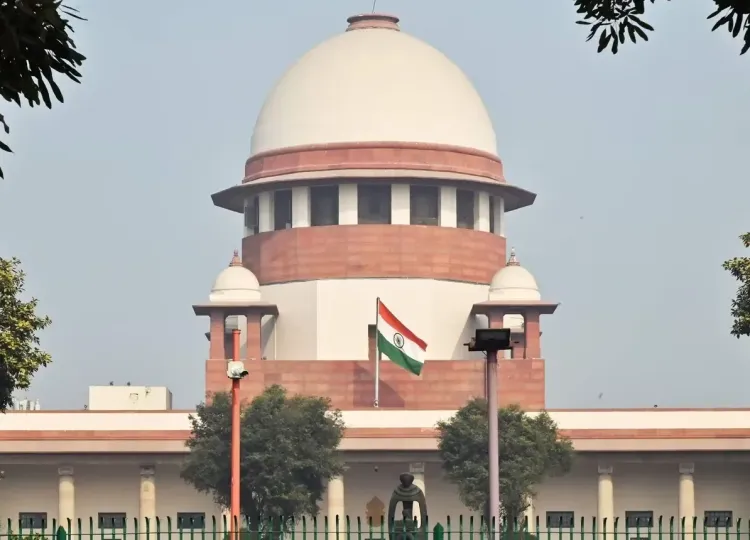Supreme Court Asserts NGT Must Consider All Aspects, Not Just Expert Committee Reports

New Delhi, Dec 4 (NationPress) The Supreme Court has stated that the National Green Tribunal (NGT) must reach its conclusions by thoroughly evaluating the facts and circumstances of each case and cannot rely exclusively on the report of an expert committee.
A bench consisting of Justices BR Gavai and KV Viswanathan criticized the NGT's method of resolving the issue without involving an affected party and for basing its decision on an external expert opinion.
By overturning the contested decisions made by the green tribunal and sending the matter back to the NGT for reconsideration, the apex court noted that the process followed was not acceptable due to violations of the principle of natural justice.
In its original ruling, the NGT had sanctioned penalties for breaches of environmental laws based on the joint committee's report, even though the complainant had not identified the appellant.
The green tribunal determined that the appellant did not install an online flow meter in the CS2 stacks to measure CS2 emissions and found that the generated acid, a by-product of the appellant's operations, posed environmental hazards.
The NGT issued its order relying on the recommendations of the joint committee.
In its verdict, the Supreme Court highlighted that neither the joint committee nor the green tribunal provided any notice to the appellant or allowed for a hearing, and the appellant’s request to be included in the proceedings was denied.
Condemning the NGT's methodology, the apex court remarked that “the procedure adopted was entirely contrary to established natural justice principles.”
“Indeed, the NGT should not have continued with the case at the outset without including the appellant as a party respondent. The NGT's approach clearly indicates a tendency to condemn a party without giving them a chance to be heard,” it noted.
The Supreme Court pointed out a “significant error” made by the NGT in basing its decision solely on the joint committee's report.
It stated, “The NGT operates under the National Green Tribunal Act of 2010. A tribunal is obliged to render its decisions by taking into account all relevant facts and circumstances. It cannot delegate its judgment and base its conclusions on external opinions.”
Consequently, the contested orders are deemed unsustainable, and the court has quashed and set them aside, directing the cases back to the NGT for a fresh review.
“It is essential to mention that if the NGT chooses to proceed based on the complaint, it must do so only after including the appellant as a party respondent,” the SC concluded.






